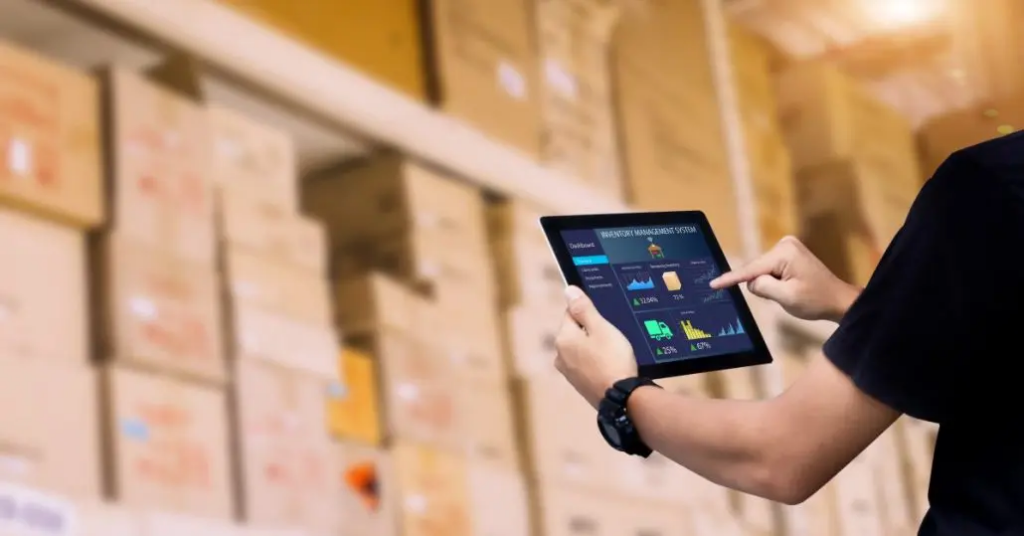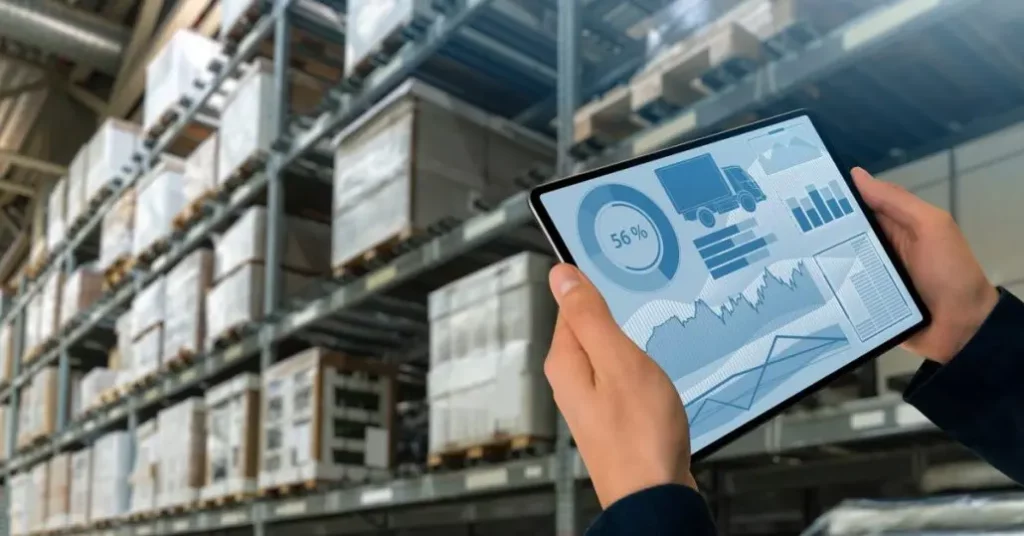In an age where efficiency and speed are paramount, how can bio pharma logistics companies keep pace with the ever-growing demands of the market? The answer lies in the transformative role played by supply chain visibility software services.
These companies are not merely adapting to changes; they are actively shaping the future of logistics through the integration of advanced technologies, improved data management, customization, and a commitment to sustainability. This article explores how these innovations are revolutionizing the logistics sector, particularly focusing on sectors like biopharma, which demand high precision and compliance.

I. Integration of Advanced Technologies
The logistics industry is experiencing a paradigm shift, propelled by cutting-edge technologies that optimize operations and enhance service delivery.
A. Utilization of AI and Machine Learning for Predictive Analytics
Artificial Intelligence (AI) and machine learning are pivotal in transforming the logistics of complex sectors like biopharmaceuticals. These technologies are employed to analyze vast datasets, predicting potential disruptions and consumer demand with remarkable accuracy.
For instance, in the biotech supply chain, predictive analytics can foresee production needs, optimize inventory, and even anticipate regulatory changes. This foresight enables companies to make proactive decisions, significantly reducing costs and improving efficiency.
B. Application of IoT for Real-Time Tracking and Monitoring
The Internet of Things (IoT) plays a critical role in real-time data capture and transmission, enhancing visibility across the supply chain. IoT devices track shipments from departure to delivery, monitoring conditions that are crucial for sensitive products, such as those in the biopharma cold chain.
Sensors can record temperature, humidity, and other critical variables, ensuring product integrity and compliance with stringent regulatory standards. This level of monitoring is vital for biopharmaceutical commercial supply, where even minor deviations can compromise product efficacy.
C. Adoption of Blockchain for Transparency and Security
Blockchain technology is increasingly adopted in logistics to bolster transparency and security, particularly in sectors involving high-value commodities like biopharmaceuticals. It provides an immutable ledger, essential for the bio pharma supply chain strategy, where documentation and traceability are paramount. Blockchain can authenticate sources, secure transactions, and streamline compliance, thereby enhancing the trust quotient across the biopharma value chain.

II. Improved Data Management and Analytics
Effective data management and sophisticated analytics are central to the modern logistics strategy, more so in highly regulated industries like biopharma.
A. The Significance of Big Data in Logistics
Big data is transformative, allowing companies to harness actionable insights from complex and voluminous datasets. In bio pharma procurement transformation, big data facilitates a deeper understanding of market trends, patient needs, and logistical bottlenecks. This information is crucial for strategic planning and operational excellence.
B. Tools and Techniques for Data Collection and Analysis
Advanced tools such as ERP systems, cloud-based analytics platforms, and AI-driven data processors enable seamless data collection and analysis. These technologies are essential for the biopharma cost breakdown, helping companies allocate resources more efficiently and strategically. Furthermore, they support enhanced forecasting, risk management, and logistical optimization.
C. How Enhanced Data Capabilities Improve Decision-Making
With robust data capabilities, logistics decision-makers can anticipate issues, adapt strategies, and respond to market changes with agility. For pharma supply chain companies, this means better management of the supply chain risks, improved regulatory compliance, and optimized supply chain operations, leading to higher profitability and customer satisfaction.

III. Customization and Flexibility
The ability to tailor solutions to meet specific logistical demands is crucial, especially in industries where standard solutions fall short.
A. Importance of Scalable and Adaptable Solutions
Customization ensures that logistics solutions can scale and adapt to varying requirements. For example, bio pharma logistics must accommodate different regulatory environments and market conditions without compromising on service quality or compliance.
B. Examples of Customizable Logistics Software Solutions
Many logistics software providers now offer platforms that integrate modular solutions, such as inventory management, CRM, and compliance tracking, which can be tailored to the specific needs of the biopharma supply chain. These solutions ensure that all aspects of the logistics process are aligned with the unique demands of the sector.
C. Benefits of Tailored Software to Diverse Logistics Needs
Customized software solutions provide the flexibility to address the diverse needs of different segments within the logistics sector, from biopharma cold chain to mainstream retail distribution. These tailored solutions enhance efficiency, reduce waste, and ensure compliance, thereby supporting the overall strategic objectives of the companies.
IV. Sustainability and Green Logistics
As the global emphasis on sustainability intensifies, logistics companies are increasingly adopting green practices facilitated by advanced software solutions.
A. The Push Towards Environmentally Friendly Operations
The push towards environmentally friendly operations in logistics reflects a growing commitment to sustainability amid global environmental concerns. Companies are increasingly integrating green practices into their logistics strategies to minimize ecological impacts. This shift is facilitated by advanced supply chain software that optimizes route planning, enhances resource efficiency, and reduces waste.
In sectors like biopharma, where environmental sensitivity is paramount, these initiatives are crucial for aligning operational practices with broader sustainability goals, helping firms not only improve their ecological footprint but also meet regulatory standards and consumer expectations for sustainable practices
B. Software Solutions That Facilitate Reduced Carbon Footprints
Software solutions designed to reduce carbon footprints in logistics play a crucial role by optimizing routes and improving vehicle load efficiencies. These technologies use advanced algorithms to ensure the most efficient transportation paths are taken, minimizing travel distances and reducing fuel consumption.
Additionally, they help plan vehicle loads to maximize capacity utilization, further cutting down on the number of trips required. Such software contributes significantly to sustainability goals by lowering emissions and enhancing the overall environmental performance of logistics operations, especially vital in industries like biopharma where compliance and efficiency are paramount.

Conclusion
Supply chain software services are not just supporting logistics; they are steering the industry towards a future marked by efficiency, customization, and sustainability. As these technologies continue to evolve, their integration into logistics strategies, particularly in high-stakes fields like biopharma, will be crucial for the success and sustainability of supply chains globally. This transformation is not merely a technological upgrade but a comprehensive shift towards smarter, more responsive, and sustainable logistics practices.

